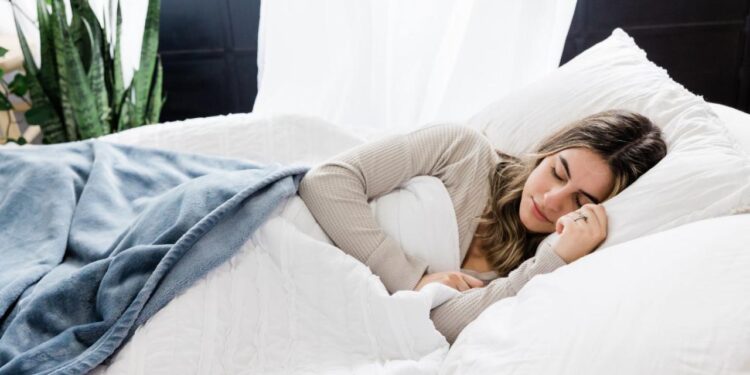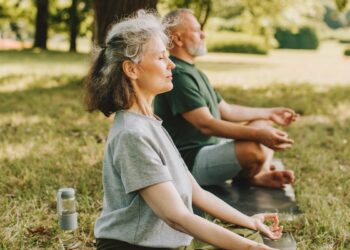In the relentless pursuit of productivity and success, sleep is often the first thing we sacrifice. We view it as a luxury, an inconvenience, or simply a waste of time. However, this perspective is fundamentally flawed. Sleep science has revealed that sleep is not a passive state of rest but an incredibly active and essential biological process that is the cornerstone of our physical and mental health. A good night’s sleep is not a reward; it is a necessity. It is during sleep that our bodies repair, our brains consolidate memories, and our immune systems recharge. This comprehensive article will delve into the profound importance of sleep, the biological processes that govern it, the consequences of sleep deprivation, and actionable strategies to improve your sleep hygiene, proving that investing in your sleep is the single most powerful investment you can make in your overall well-being.
The Science of Sleep

Sleep is a complex physiological process that is regulated by two key internal systems: the circadian rhythm and sleep pressure. Understanding these systems is the first step to understanding why sleep is so vital.
A. The Circadian Rhythm: This is our body’s internal biological clock, a 24-hour cycle that governs our wake-sleep cycle. It is primarily regulated by light and darkness. When light hits our eyes in the morning, it signals our brain to reduce the production of melatonin, a hormone that makes us feel sleepy. As the day progresses and darkness falls, melatonin production increases, making us feel tired and ready for bed. A consistent circadian rhythm is crucial for a healthy sleep pattern.
B. Sleep Pressure (Homeostatic Sleep Drive): This is the feeling of sleepiness that builds up the longer we are awake. The brain accumulates a chemical called adenosine throughout the day. The more adenosine that builds up, the stronger the feeling of sleepiness. Sleep is the only way to clear this adenosine from our brains, which is why a good night’s sleep makes us feel refreshed and alert in the morning.
C. The Stages of Sleep: A night’s sleep is not a monolithic event; it is a dynamic cycle of four distinct stages. We cycle through these stages multiple times a night, with each cycle lasting approximately 90 minutes.
* Non-Rapid Eye Movement (NREM) Sleep: This is the first three stages of sleep.
* Stage 1 (Light Sleep): The transition from wakefulness to sleep.
* Stage 2 (Light Sleep): A deeper stage of sleep where our body temperature drops and our heart rate slows. This is where we spend the most time.
* Stage 3 (Deep Sleep): This is the most restorative stage of sleep. Our body repairs itself, our immune system recharges, and human growth hormone is released.
* Rapid Eye Movement (REM) Sleep: This is the final stage of sleep, and it is where most of our dreaming occurs. REM sleep is crucial for cognitive functions like memory consolidation, emotional regulation, and learning.
The Consequences of Sleep Deprivation
The myth that we can “catch up” on sleep is a dangerous one. Chronic sleep deprivation has a cascade of negative effects on our physical and mental health, impacting nearly every system in the body.
A. Cognitive Impairment: Sleep deprivation severely impairs our cognitive abilities. It reduces our attention span, slows our reaction time, and impairs our judgment and decision-making skills. It also makes it difficult to learn new information and to consolidate existing memories. This is why a groggy mind is a less productive and more error-prone mind.
B. Weakened Immune System: During sleep, our bodies produce cytokines, a type of protein that helps our immune system fight off infection and inflammation. When we are sleep-deprived, our production of these protective cytokines decreases, making us more susceptible to illness, from the common cold to more serious infections.
C. Increased Risk of Chronic Diseases: Chronic sleep deprivation has been linked to an increased risk of a variety of serious health conditions. It can disrupt our metabolism, increasing the risk of type 2 diabetes. It can also raise blood pressure and increase the risk of heart disease and stroke.
D. Mental Health Disorders: There is a strong bidirectional link between sleep and mental health. Sleep deprivation can exacerbate symptoms of anxiety and depression, and a lack of sleep can make us more emotionally volatile and less able to cope with stress.
E. Weight Gain: Sleep plays a crucial role in regulating our appetite hormones. When we are sleep-deprived, our body produces more ghrelin, the “hunger hormone,” and less leptin, the “satiety hormone.” This can lead to increased appetite and a greater desire for high-calorie, sugary foods, contributing to weight gain and obesity.
F. Reduced Physical Performance: For athletes and fitness enthusiasts, sleep is a key component of recovery and performance. A lack of sleep impairs muscle repair, reduces physical endurance, and increases the risk of injury. It also impacts our coordination and reaction time, which are crucial for athletic performance.
Actionable Strategies for Better Sleep Hygiene

The good news is that we have a significant amount of control over the quality of our sleep. By adopting a few simple yet powerful habits, known as sleep hygiene, we can dramatically improve our sleep quality and reap the immense benefits of a well-rested life.
A. Stick to a Consistent Sleep Schedule: Our bodies thrive on routine. Go to bed and wake up at the same time every day, even on weekends. This helps to regulate your circadian rhythm and makes it easier to fall asleep and wake up naturally.
B. Create a Relaxing Bedtime Routine: The hour before bed should be a time to wind down. Avoid stimulating activities like watching action movies or engaging in stressful work. Instead, try a relaxing activity like reading a book (a physical one, not on a screen), taking a warm bath, or listening to calming music.
C. Optimize Your Bedroom Environment: Your bedroom should be a sanctuary for sleep.
* Keep it Dark: Blackout curtains or a sleep mask can block out light that can disrupt your melatonin production.
* Keep it Cool: Most people sleep best in a cool room, between 60 and 67 degrees Fahrenheit (15-19 degrees Celsius).
* Keep it Quiet: Use earplugs or a white noise machine to block out distracting sounds.
D. Limit Screen Time Before Bed: The blue light emitted from our smartphones, tablets, and TVs can suppress the production of melatonin, making it harder to fall asleep. Aim to turn off all screens at least 30-60 minutes before bed.
E. Be Mindful of Diet and Exercise: Avoid heavy meals, caffeine, and alcohol close to bedtime. While a glass of wine might make you feel drowsy, it can disrupt your sleep cycle later in the night. Regular exercise is great for sleep, but try to avoid intense workouts too close to bedtime.
F. Get Natural Light Exposure: Getting natural light exposure, especially in the morning, helps to regulate your circadian rhythm. It signals to your brain that it’s time to wake up and be alert. Aim for at least 15-30 minutes of natural light exposure each morning.
G. Consider Your Bedding: A comfortable mattress, pillows, and bedding can make a significant difference in your sleep quality. Invest in quality materials that support your body and keep you at a comfortable temperature.
The Future of Sleep Science
The field of sleep science is a dynamic one, with new research and technology constantly emerging. The future promises an even deeper understanding of sleep and more personalized ways to improve it.
First, wearable technology will become even more sophisticated, providing highly accurate and personalized data on sleep stages, heart rate variability, and other metrics. This data will be used to provide customized sleep coaching and interventions.
Second, the line between sleep and mental health will continue to blur. We will see the development of more integrated therapeutic solutions that address both sleep disorders and mental health conditions simultaneously, recognizing the strong bidirectional link between the two.
Third, AI and machine learning will play a greater role in sleep medicine. AI will analyze vast amounts of data to identify sleep disorders with greater accuracy and to predict when a person is at risk for a sleep-related health issue.
Finally, we will see the emergence of smarter sleep environments. Beds, pillows, and lighting will become “smart,” adapting to our body’s needs in real-time to optimize our sleep quality. This could include beds that automatically adjust their firmness or pillows that change their temperature.
Conclusion
Sleep is not a passive luxury but an active and vital biological process that is the foundation of our health. It is the time when our bodies and minds repair, recharge, and prepare for the challenges of the day ahead. The science is unequivocal: chronic sleep deprivation has a profound and detrimental effect on our cognitive function, immune system, mental health, and physical performance. It increases our risk for a host of chronic diseases and diminishes our quality of life.
The good news is that we have the power to change this narrative. By prioritizing sleep and adopting good sleep hygiene habits, we can reclaim this essential part of our lives. It’s a journey that starts with a simple commitment to a consistent sleep schedule, a relaxing bedtime routine, and a tranquil bedroom environment. Investing in your sleep is a radical act of self-care, a powerful tool for self-improvement, and the single most effective strategy for building a healthier, happier, and more resilient life. As the scientific understanding of sleep deepens, and technology provides us with new tools to measure and improve it, we are entering a new era where a good night’s sleep is no longer a matter of chance but a deliberate and informed choice. The future of health is a future where we all understand that a healthy life begins with a well-rested mind and body. The revolution has begun, and it starts with you, tonight.







Discussion about this post